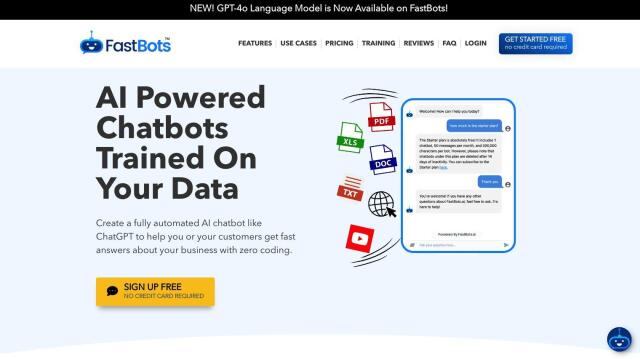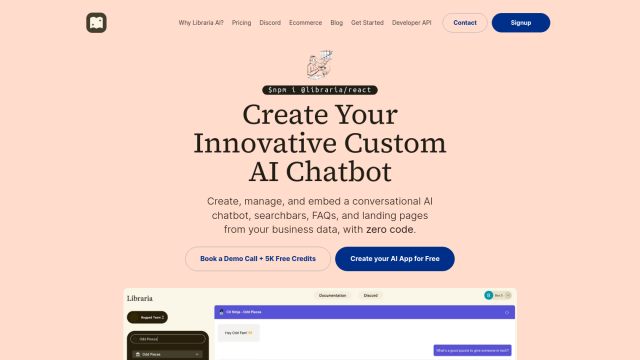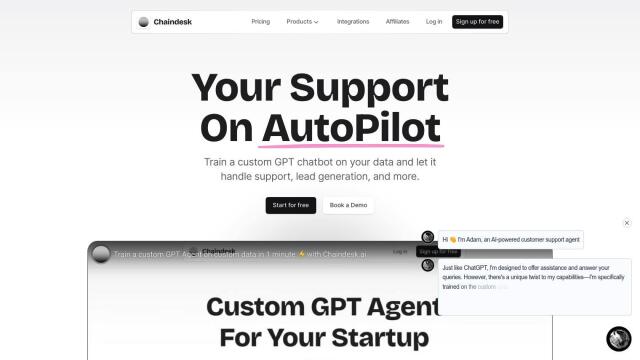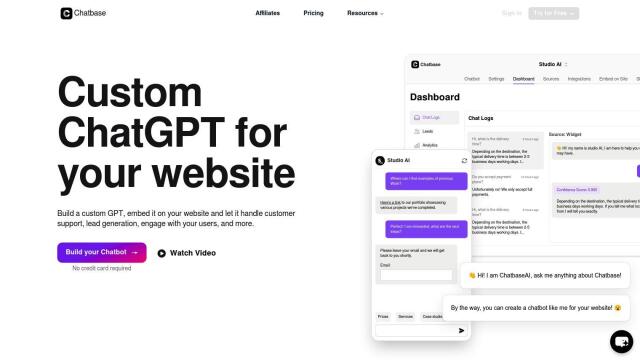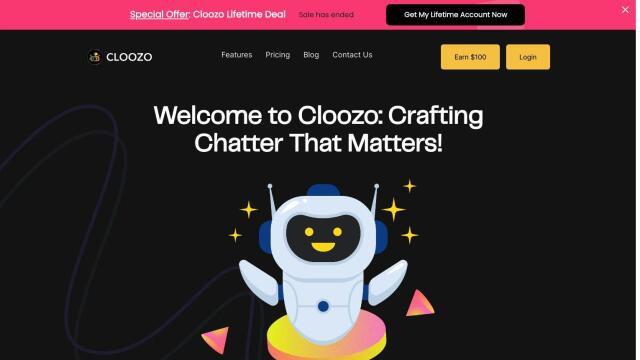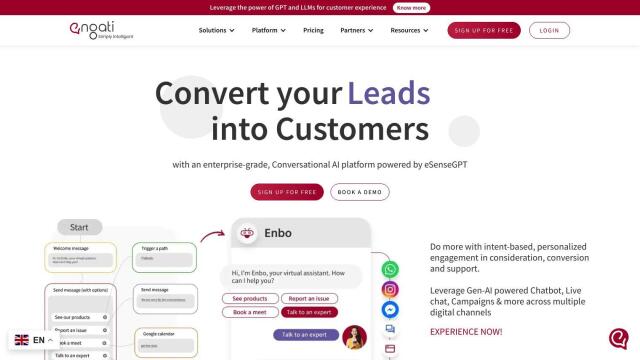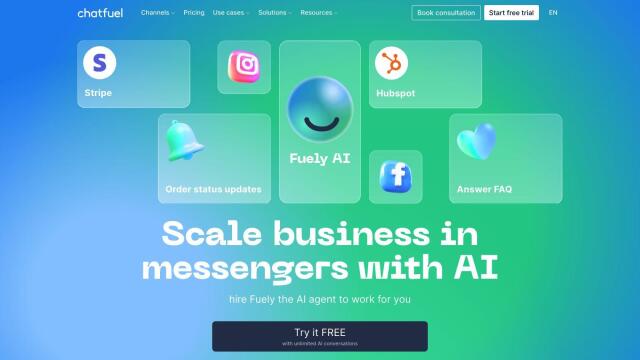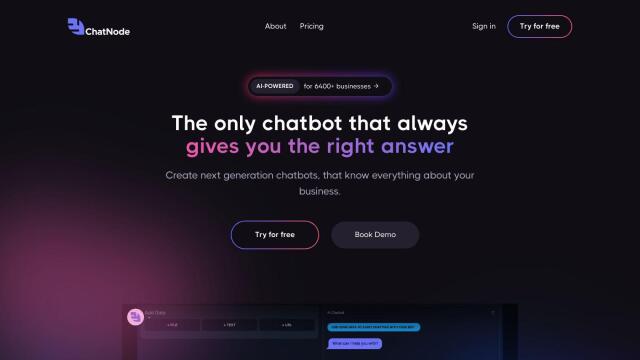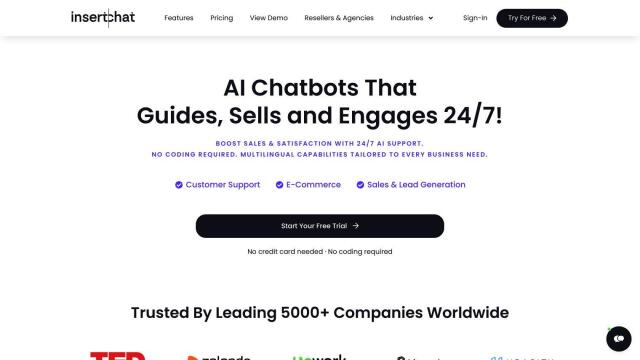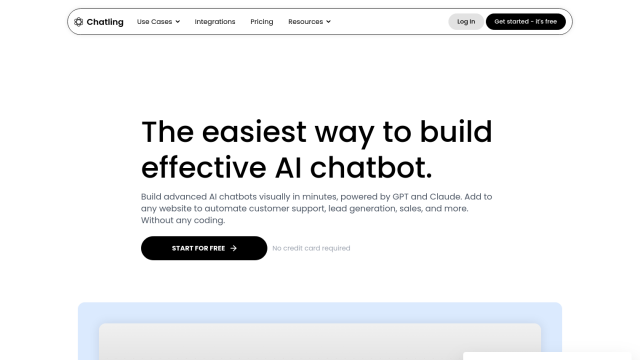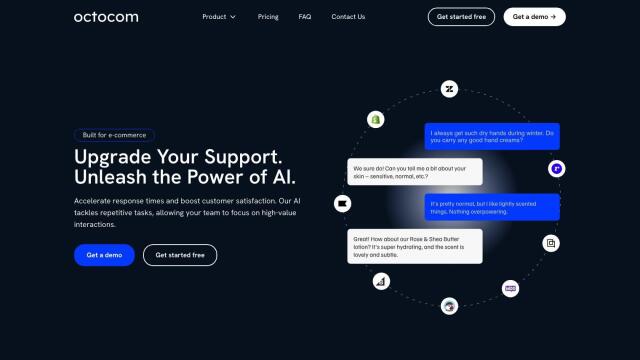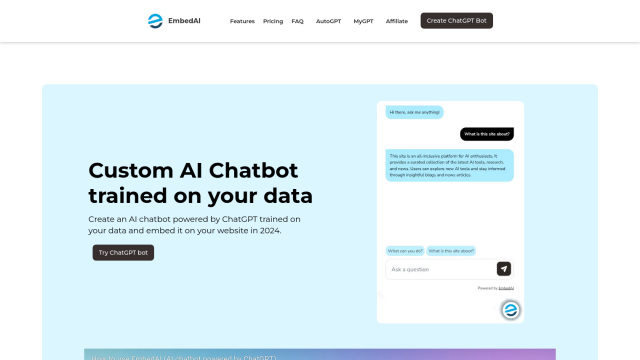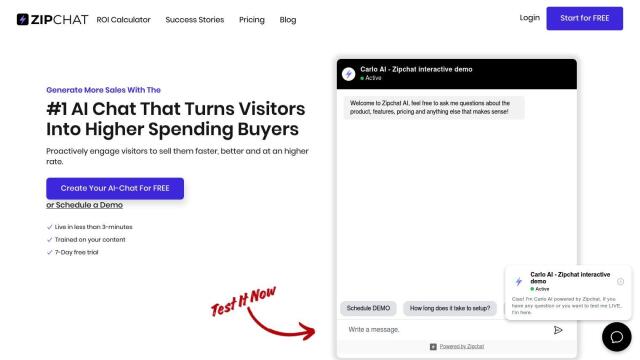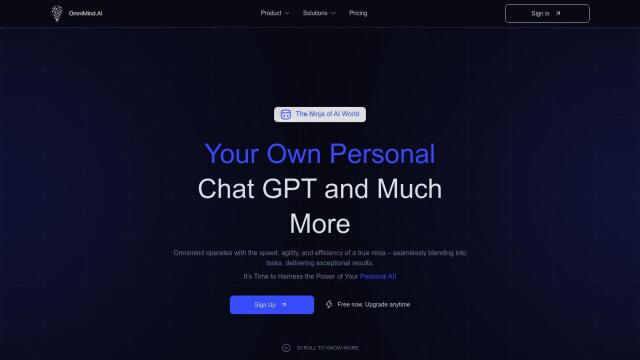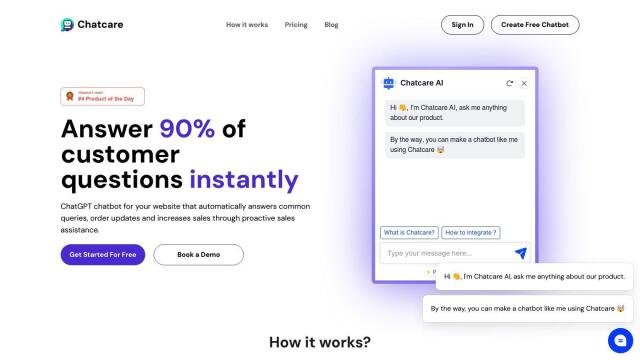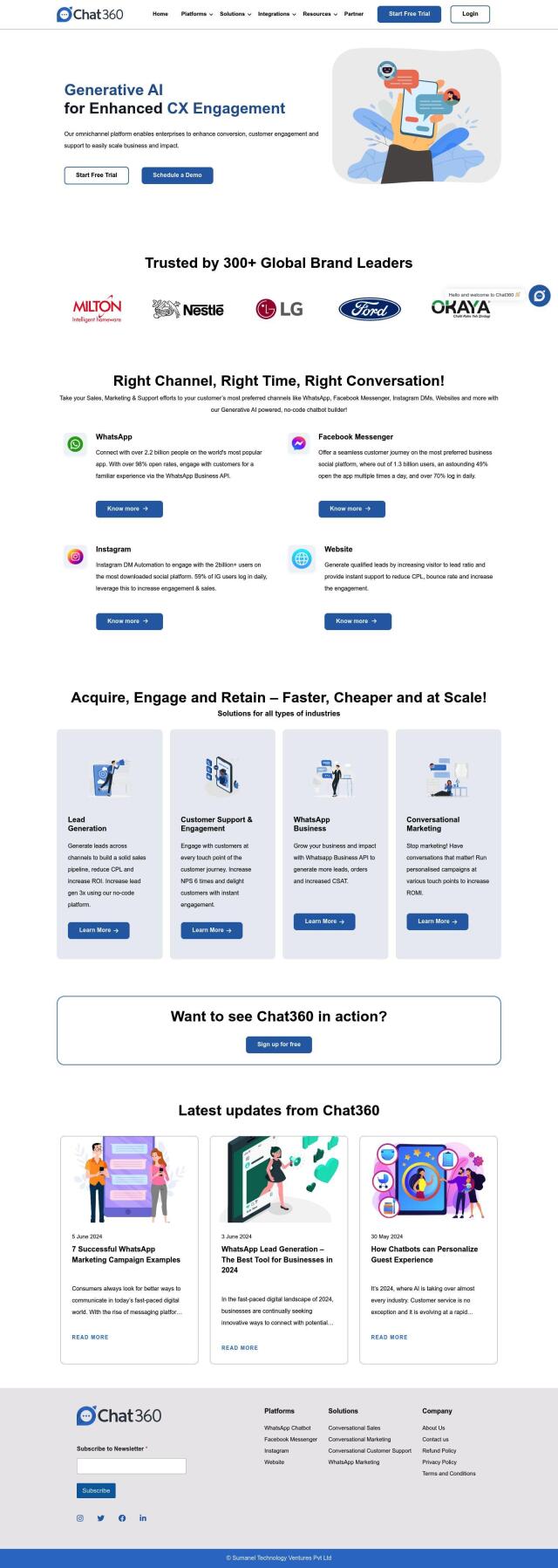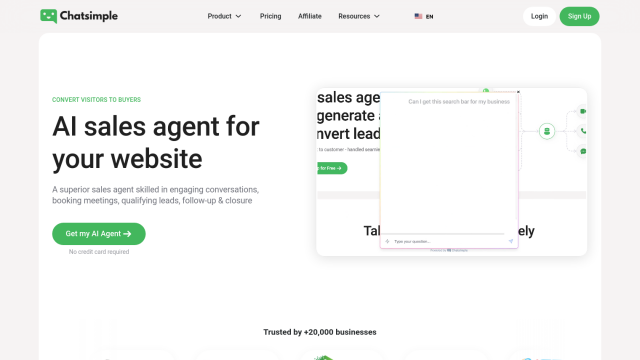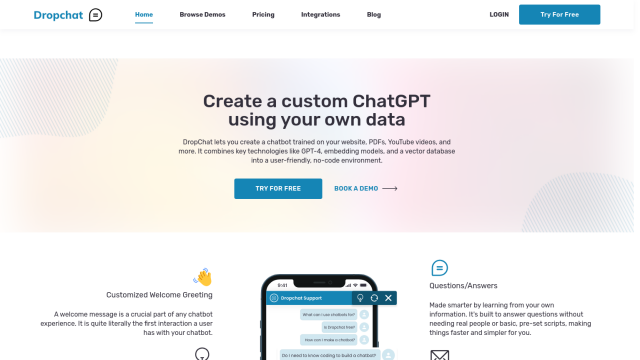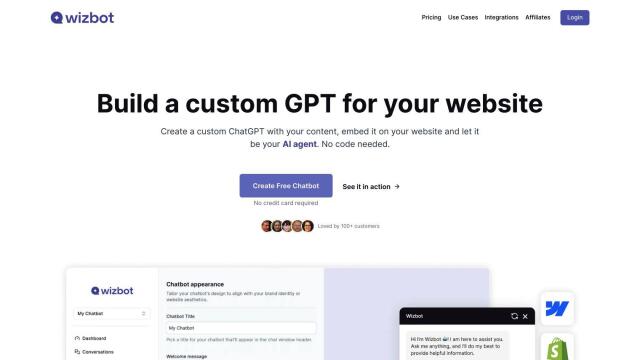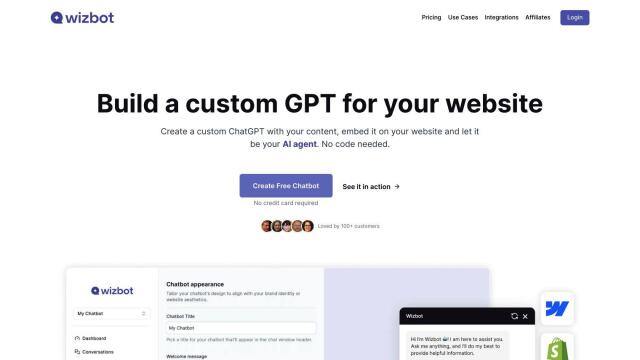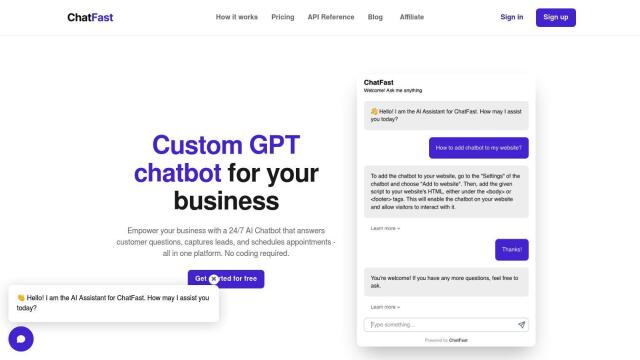Question: I'm looking for a platform that helps me build custom chatbots for e-commerce, using my product catalog and customer data to improve user engagement.

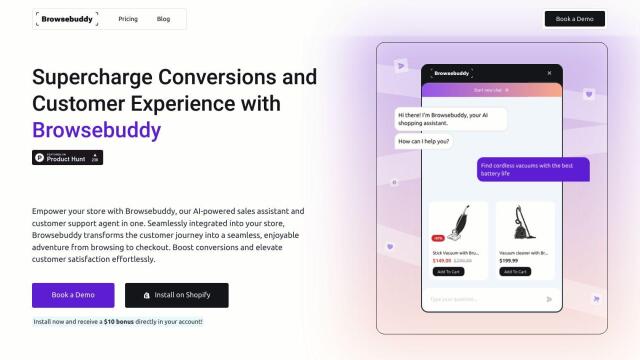
BrowseBuddy
If you want a platform to build your own chatbots for e-commerce that are integrated with your product catalog and customer data, BrowseBuddy is a good option. It uses AI-powered GPT algorithms to offer personalized product recommendations that can boost customer engagement and sales. With features like a Smart Checkout Companion, AI-Powered Search, and Real-Time Resolution Center, it's designed to improve the shopping experience and lead to dramatic increases in add-to-cart rates and average order value. It integrates directly with Shopify and supports multiple product catalogs, so customer service teams are freed up.

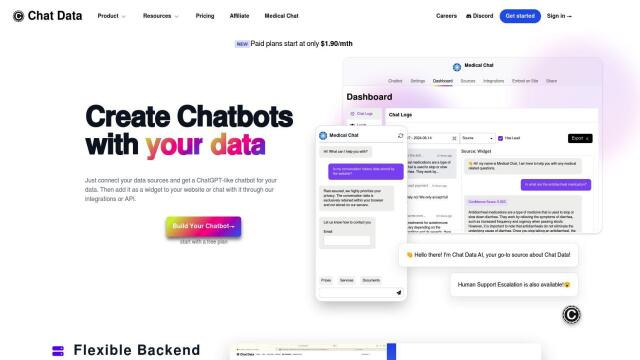
Chat Data
Another option is Chat Data, which lets you train and deploy chatbots using your own data. It's got a flexible backend for plugging in your own models, a branded interface for styling and customization, and an analytics tool to see what's going on in conversations. It also supports e-commerce store integration, human support escalation and third-party tool integration, and has a range of pricing options including a free tier. That makes it a good option for building your own chatbots for e-commerce.

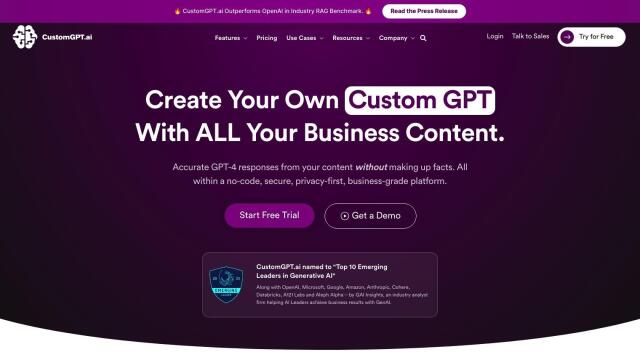
CustomGPT
For a no-code option, CustomGPT is a simple interface to tap into the GPT-4 technology for customer interactions. It can be used on a website, deployed as an API and has scalable pricing options. It's a good option for improving customer interactions and efficiency, especially in customer service. With a range of pricing options including Enterprise plans, CustomGPT is adaptable to different business needs.

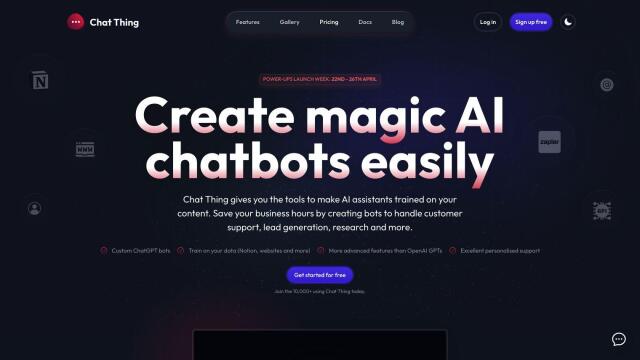
Chat Thing
Chat Thing is another option, letting you incorporate your own data from any source to offer personalized and contextual chatbots. That's particularly useful for companies with their own data, letting them offer more useful and informative conversations. It can be used in a variety of settings, including e-commerce, education and customer service, so it's a good option for companies that want to use chatbots to engage with customers.

